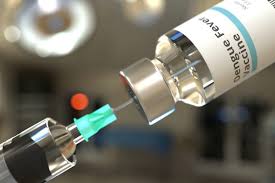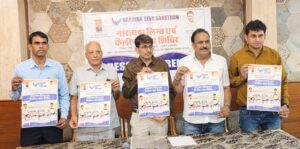
Efforts to develop a dengue vaccine are making significant strides, providing hope to those afflicted by the disease in Bihar and across India. The third phase of clinical trials for the dengue vaccine has officially begun in Patna, marking a crucial step towards combating the widespread infection. The trial has already seen six individuals vaccinated, with plans to include approximately 500 participants from Bihar.
The ongoing trials are being carefully monitored by the Rajendra Memorial Medical Science Research Institute (RMRIMS), a division of the Indian Council of Medical Research (ICMR), which is overseeing this crucial project. According to RMRIMS officials, the third phase of trials commenced on September 26, with six individuals receiving the first doses of the vaccine.
These participants will be closely followed for a two-year period, allowing scientists to observe the vaccine’s effects over an extended duration. This long-term monitoring is essential for assessing the vaccine’s efficacy, safety, and overall impact on dengue prevention.
This trial is part of a larger effort led by ICMR in collaboration with Panacea Biotech Limited, a prominent vaccine manufacturer. Together, they aim to vaccinate a total of 10,000 people across 19 centers in India. Patna’s RMRIMS is one of these centers and is expected to vaccinate around 500 participants during the trial.
These nationwide trials are a significant step in the quest to reduce the incidence of dengue, a disease that has long plagued the country. The success of the vaccine could mark a major breakthrough in public health, especially in states like Bihar, where dengue remains a pressing concern.
Dengue continues to be a serious issue in Bihar, with alarming statistics emerging in recent weeks. Over the past 24 hours alone, 123 new cases have been reported in the state, adding to a total of 4,416 hospitalizations this year. Tragically, 12 lives have already been lost to the disease, with 2,184 cases originating in Patna alone.
The surge in dengue cases has created significant health challenges, with certain areas of Patna becoming hotspots for the disease. The delays in the vaccine trial, caused by the late arrival of the vaccine (which was expected in July but only arrived in September), have compounded these difficulties. The timig of the vaccine’s arrival hindered researchers’ ability to evaluate its efficacy during the peak of the dengue season when infections were rampant.
Despite these setbacks, the commencement of the third phase of dengue vaccine trials brings a ray of hope. If successful, the vaccine could greatly reduce the number of cases and fatalities, not just in Bihar but across the nation. The collaborative efforts between ICMR, Panacea Biotech, and the various trial centers demonstrate India’s commitment to finding a lasting solution to the dengue crisis.






